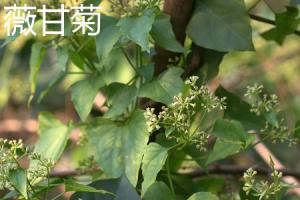Why Plant Native Trees
Planting trees is an important undertaking that plays a huge role in environmental conservation. However, the kind of trees you plant matters a lot. There is a rising need to invest in native species, which are trees that occur naturally in a particular region or ecosystem. Native trees are essential not only because they support the indigenous fauna and flora, but also because they provide numerous benefits that can promote a sustainable environment.
Diversity
Native trees offer a variety of benefits to the environment. For instance, they provide a diverse range of habitats for different living organisms such as insects, birds, and small animals. In addition, they create a home for various plant species, all of which play a crucial role in maintaining the ecosystem. As such, planting native trees helps to promote a thriving biodiversity and maintain the ecological balance.
Resilience to Climate Change
Climate change is a phenomenon that continues to threaten the existence of various species, including trees. In recent years, the impact of climate change has been observed in extreme weather events such as droughts, heatwaves, and floods. However, native tree species have evolved over time and have developed a capacity to survive and adapt to these changes. Therefore, investing in native trees ensures that the environment is more resilient to the effects of climate change.
Soil Conservation
The roots of native tree species are stronger and more suited to the local environment than those of introduced tree species. They help to reduce soil erosion, conserve water, and promote soil nutrient cycling. Through natural soil-building, native trees conserve the soil, which is crucial in maintaining the ecosystem's health. Therefore, planting native trees helps to protect the soil's fertility, keeping it healthy, and promoting continued growth.
Aesthetic Value
Native trees give an aesthetic appeal that enhances the environment; they represent local history and can play a significant role in cultural preservation. An abundance of native trees in an area creates an ideal habitat for both plants and wildlife, reinforcing the emotional connection people have with their environment.
Conclusion
Planting native trees is beneficial to the environment, including supporting the indigenous flora and fauna, promoting biodiversity, and contributing to the resilience of the environment in the face of climate change. Moreover, native trees have strong roots and help to conserve soil, while simultaneously enhancing the aesthetic value of the surrounding ecosystem. Therefore, more attention needs to be paid to planting and maintaining native trees, as they are a valuable tool in environmental conservation and sustainable development.

 how many times do yo...
how many times do yo... how many planted tre...
how many planted tre... how many pine trees ...
how many pine trees ... how many pecan trees...
how many pecan trees... how many plants comp...
how many plants comp... how many plants can ...
how many plants can ... how many plants and ...
how many plants and ... how many pepper plan...
how many pepper plan...





























